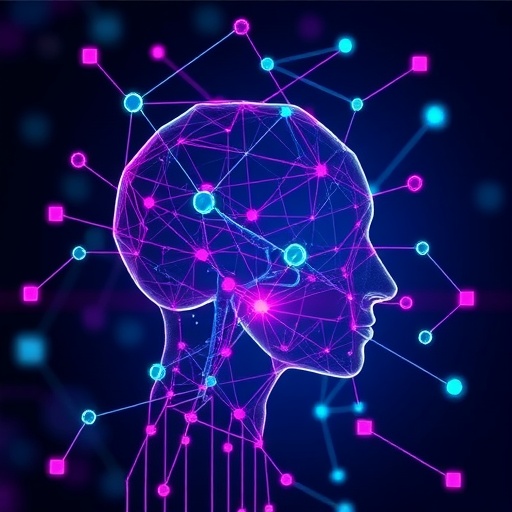Artificial intelligence (AI) possesses transformative capabilities, especially in the realm of mental healthcare, where scalability, personalization, and accessibility are critically needed. As therapeutic practices evolve with the integration of technology, AI’s promise of delivering tailored interventions potentially allows for significant advancements in mental health outcomes. Yet, the confluence of AI and healthcare does not come without its challenges. In particular, AI systems can inadvertently perpetuate or amplify biases that exist within the data they are trained on, raising concerns about inequity in treatment among minority populations.
The implementation of AI in mental health is a double-edged sword; while it offers innovative solutions, systemic biases can lead to detrimental consequences. When AI systems are developed without adequate consideration for diversity and representation, they may cater to the predominant demographics found in the training datasets. This poses a serious risk of alienating minoritized groups, thereby deepening existing disparities in mental healthcare access and efficacy. The very algorithms designed to enhance care can inadvertently widen the gap for those who are most in need of support.
Recognizing these challenges, a groundbreaking model has been proposed that aims to counteract bias while fostering inclusion within the realms of mental health AI technologies. This model, conceptualized as dynamic generative equity, or adaptive AI, is innovatively structured to weave equity into the foundational processes of AI system development. The key objective is to ensure that mental health interventions delivered through AI are not just effective but also equitable for diverse populations. This approach advocates for the integration of fair-aware machine learning with participatory co-creation methodologies.
Fair-aware machine learning emphasizes developing AI systems that actively identify and mitigate biases in dataset representations. This quantitative dimension equips researchers and developers with tools to detect discrepancies within their algorithms, allowing for ongoing adjustments that preserve fairness. However, it is recognized that without the qualitative input of those from the communities most affected, such efforts may fall short in terms of cultural relevance and practical applicability. By merging quantitative bias detection with community-driven insights, the model ensures that the AI systems devised genuinely resonate with the populations they aim to serve.
The procedural framework of this model consists of iterative feedback loops that adapt the AI-based interventions based on real-time insights provided by community collaborators. These loops are critical for achieving comprehensive stakeholder engagement, as they equip communities with a platform to voice their needs, experiences, and suggestions. By honoring the lived realities of individuals from diverse backgrounds, AI systems can evolve to remain culturally responsive to the nuances of different communities.
Moreover, the model’s emphasis on co-creation validates the importance of collective intelligence in informing interventions. It is through this collaborative process that AI applications can develop a more nuanced understanding of social and cultural contexts. This does not only allow developers to construct algorithms that respect and honor diversity but also cultivates a sense of ownership among community members in the design and delivery of mental health solutions tailored to their unique circumstances.
Despite the advantages presented by this adaptive AI model, it is essential to address its limitations candidly. The execution of such a comprehensive approach requires significant resources, time, and commitment from all stakeholders involved. The need for ongoing engagement and investment can pose barriers, particularly where traditional funding models are ill-suited to accommodate innovative new methodologies. Furthermore, the complexity of navigating different cultural contexts while maintaining uniform standards for multiple groups can present logistical challenges.
As we delve deeper into the implications of adopting the dynamic generative equity model, we begin to understand its potential applications across a range of mental health settings. From clinical environments to community outreach programs, adaptive AI can help tailor interventions based on specific demographic needs, resulting in increased efficacy and better outcomes. Additionally, this model can encourage a paradigm shift among practitioners and technologists, prompting a more ethical and conscientious approach to AI in healthcare.
Looking ahead, future directions for research are burgeoning, driven by the necessity to refine and expand upon the principles outlined in the adaptive AI framework. Studies could explore the specific mechanisms by which AI can be trained to prioritize equity without compromising on efficiency or effectiveness. Moreover, longitudinal studies examining the long-term impacts of these AI-driven interventions on various populations will be critical in understanding their real-world implications.
In conclusion, the integration of AI into mental healthcare is rife with potential, yet fraught with challenges that must be addressed if the technology is to be beneficial for all. The dynamic generative equity model presents an innovative approach to dismantling biases and fostering inclusion within AI applications, ultimately working toward a future where mental healthcare is not just accessible but equitable. By actively involving marginalized populations in the development processes, we can work toward interventions that authentically reflect their needs, ensuring that advancements in technology do not exacerbate existing disparities but rather promote healing and understanding.
The journey toward an equitable future in mental healthcare is just beginning, and as we embark on this transformative path, each step must be taken with diligence, care, and above all, a commitment to creating a system that genuinely serves everyone.
Subject of Research: Artificial intelligence in mental healthcare and bias reduction through adaptive AI models.
Article Title: Bridging fair-aware artificial intelligence and co-creation for equitable mental healthcare.
Article References:
Timmons, A.C., Duong, J.B., Walters, S.N. et al. Bridging fair-aware artificial intelligence and co-creation for equitable mental healthcare. Nat Rev Psychol (2025). https://doi.org/10.1038/s44159-025-00491-5
Image Credits: AI Generated
DOI: 10.1038/s44159-025-00491-5
Keywords: artificial intelligence, mental healthcare, bias reduction, equitable interventions, adaptive AI, fair-aware machine learning, community co-creation, cultural relevance.




